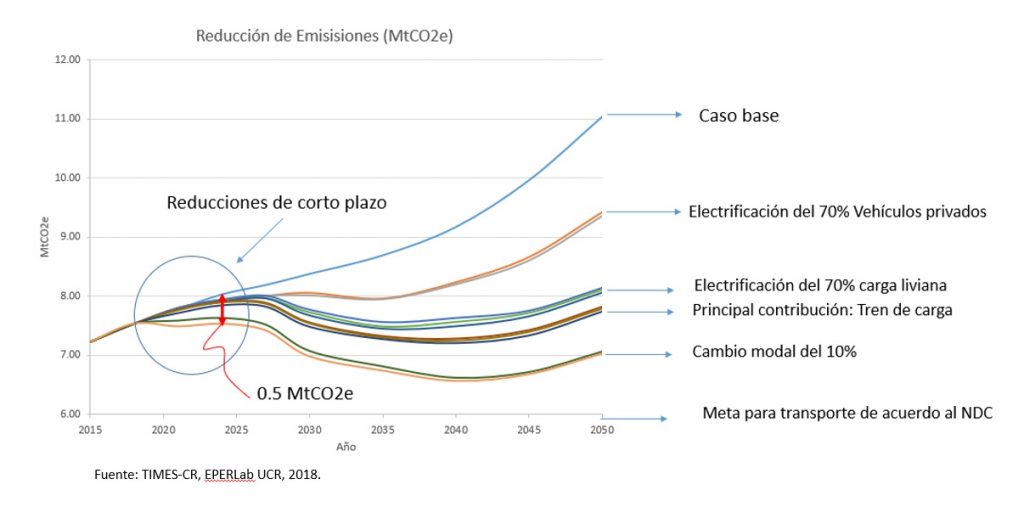
On February 24th 2019, Costa Rica presented its ambitious plan to decarbonise its economy until 2050. It aims to go beyond the usual efforts and global commitments in order to achieve a modern, green, emission-free, resilient and inclusive economy with regards to human rights and gender equality.
As part of this commitment, the government also signed an inter-ministerial agreement for greenhouse gas reduction in the transport sector. Within this agreement, the Ministry for Environment and Energy and the Ministry for Transport and Public Works commit to working together to implement mitigation actions, policies and instruments. With those, the aim is to reduce 0,5 megatons of CO2 equivalents against the baseline in 2024 and at the same time improving the transport system and quality of life of Costa Rica´s citizens. Larger emission reductions can be achieved in the longer term. In 2050, a total reduction of 4,01 MtCO2e against the baseline is expected.
The foreseen measures aim at improving freight transport and public transport services, as well as discouraging the use of private motorized transport. Additionally, the agreement confirms the commitment to creating adequate conditions for the use of non-motorized transport, such as bicycle lanes and proper sidewalks. At the same time it boosts the necessary infrastructure changes in order to transition towards zero-emission mobility solutions.

The agreement is the result of a seven-month-long dialogue between the two ministries and included several international experts as well as two extensive periods of public consultancy. The process was facilitated and accompanied by the national electricity provider ICE and the German cooperation GIZ under the project MiTransporte and the project ACCION Clima. ACCION Clima supports the government in developing strategies and tools for emission reduction in key sectors.
The agreement contributes to the Decarbonisation Plan, a roadmap to modernise the Costa Rican economy, generating employment and streamlining its growth. Additionally, the planned measures, activities and improvements form part of the country’s extended Nationally Determined Contributions (NDCs). Costa Rica will present those in 2020 to the UNFCCC to demonstrate and strengthen its commitment to reduce greenhouse gas emissions and participate in the global effort to avoid global temperature increases above 2 degrees Celsius with respect to the pre-industrial era.

Diana Alejandra Ramirez Chaves